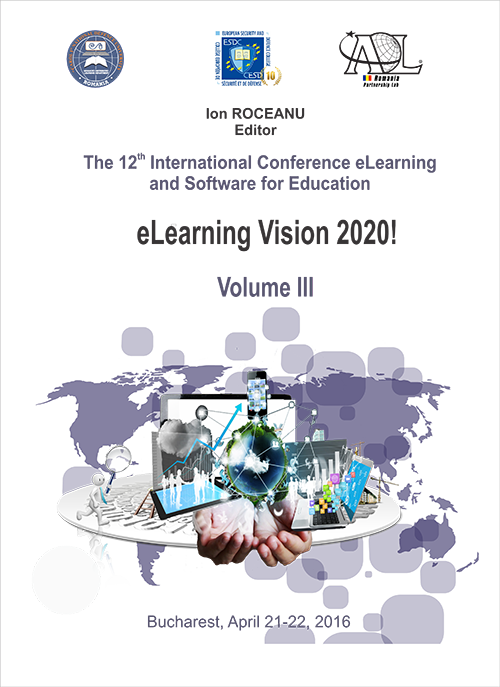TOWARDS A COMPUTER-MEDIATED ESP CLASS
TOWARDS A COMPUTER-MEDIATED ESP CLASS
Author(s): Lorena Clara Mihaes, Anda Dimitriu, Irina BocianuSubject(s): ICT Information and Communications Technologies, Sociology of Education
Published by: Carol I National Defence University Publishing House
Keywords: ESP; computer-mediated class; blended learning; questionnaire;
Summary/Abstract: The advent of the new technologies nowadays has affected many areas, among which higher education. Its conservative environment is faced with a challenge: whether to reject or, at best, limit the intrusion of digital technologies on both the curricula and its delivery, or to embrace them, thus turning a potential threat into an enabler. The academic teaching of English for Specific Purposes (henceforth ESP) shares the dilemma. The present paper is concerned with how the new technologies can improve students’ skills and learning effectiveness in second language acquisition. The rationale for our enterprise has been, on the one hand, our awareness that we address a generation of digital natives, always accompanied by some smart device. On the other hand, we have taken into account the difficulties we encounter when teaching ESP, such as insufficient listening practice, difficulties in presenting video materials and limited practice of burdensome issues due to time constraints. The starting point of our enquiry has been a questionnaire especially designed to assess the students’ opinion regarding the blending of traditional teaching with the computer-assisted classroom. In order to collect their responses, we have used LimeSurvey, an open source which has also helped us with interpreting the data. As anticipated, the analysis and interpretation of the answers have led us to consider the need for transition from traditional to modern teaching tools. Among the benefits of the computer-mediated ESP class, one can enumerate off-campus access to materials, completion of assignments that encourage independent learning, further practice of models discussed in class, in-class access to a large variety of online resources, and, last but not least, an overall more active and complex learning experience.
Journal: Conference proceedings of »eLearning and Software for Education« (eLSE)
- Issue Year: 12/2016
- Issue No: 03
- Page Range: 167-174
- Page Count: 8
- Language: English

